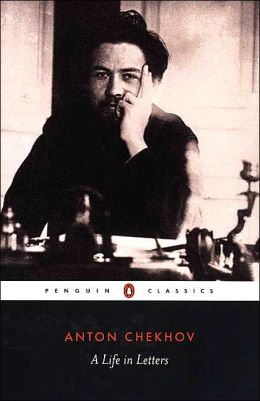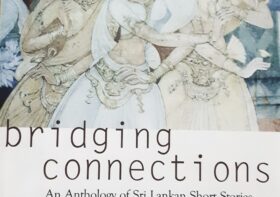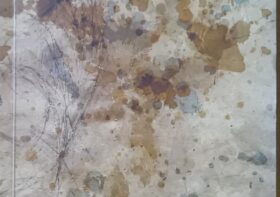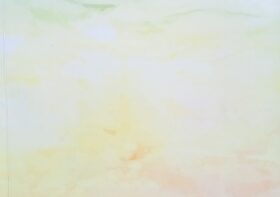Anton Chekhov – A life in letters.

(Chekhov అనే రష్యన్ పేరును ఎలా పలకాలో నాకు తెలీదు. గూగుల్ ఆ ప్రశ్నకు ఎన్నో జవాబులు ఇచ్చింది. ఈ వ్యాసంలో ’చెకాఫ్’ అని ఆ పేరును రాస్తున్నాను. ఖచ్చితమైన ఉచ్ఛారణ తెల్సినవారు కామెంట్స్ లో తెలుపగలరు.)
కాగితం, కలం వాడి రాసే ఉత్తరాలెటూ కాలగర్భంలో కల్సిపోయాయి.. దాదాపుగా! ఓ రకంగా ఈ-మెయిల్ కూడా out-of-fashion అయిపోతోంది. ఇలాంటి పరిస్థితుల్లో ఉత్తరాల గురించి గొప్పగా చెప్తే, అందులో నిజాలున్నా నోస్టాల్జిక్గా మాత్రమే అనిపిస్తుంది. ఈ పుస్తకాన్ని పరిచయం చేయడానికి ఉత్తరాలెంతటి విలువైనవో చెప్పాలి. కానీ, ఇంకేదో సందర్భంలో మరెవరో అన్నట్టు – విలువ తెల్సినవాళ్ళకి వాటిని గురించి చెప్పనక్కర్లేదు. తెలియనివారికి చెప్పినా లాభముండదు. “A Life in Letters!”అన్న sub-text ఎవరికి అర్థమయ్యేలా వారికి అర్థమవుతుంది.
ప్రపంచం నెత్తిన పెట్టుకునే రచయితలు కొందరుంటారు. దానికి విపరీతంగా నచ్చేయటంతో వారిని అందలెమెక్కించి కూర్చోబెడుతుంది. సమకాలీనులు ఆ రచయితను చూసినట్టు తర్వాతి తరాలు చూసే అవకాశాన్నే ఇవ్వదు. ఆ రచయిత పోయిన కొన్ని దశాబ్దాలకో, శతాబ్దాలకో ఉనికిలోకి వచ్చిన పాఠకుడు ఇంత ఎత్తుమీద ఉన్న రచయిత చూడదల్చుకున్నప్పుడు పొగడ్తల పూలదండలు, అవార్డుల శాలువాలు మాత్రమే కనిపిస్తాయి. వాటిని తప్పించుకుని ఎట్లాగో రచయిత అసలు పనిని – అదే రచనల్ని – చదివితే చుట్టూ జనాలు చేసే హడావుడి తగ్గి, రచయిత కొద్దో, గొప్పో దర్శనమిస్తాడు. అటుపై ఆ రచయితా పాఠకుని మధ్య ఏర్పడే బంధం పాఠకుడి మీద ఆధారపడి ఉంటుంది. అదెంత దూరం పోయినా, బంధం ఎంత గాఢమైనా కూడా రచయిత అద్దంలో చందమామలానే మిగులుతాడు.
ఇప్పుడీ రచయిత అమాంతంగా మళ్ళీ పునర్జీవించాలంటే? అలా పునర్జీవితుడై పాఠకుని తాను తిరిగిన స్థలకాలాదులలో తిప్పాలంటే? తిప్పుతూ అప్పటి తన మనసులో ఉన్న ఆలోచనా ఝరినంతా పాఠకునిపై కురిపించాలంటే? మనిషిగా పుట్టి, ఉన్నంత కాలం ప్రాపంచిక అనుభవాల్లోంచి కథలను పుట్టించి, వాటికి జీవం పోసి.. పోయాక ఒక పేరుగా, ఒక సింబుల్గా, వీధుల్లో బొమ్మగా, సాహిత్య ప్రస్తావనలో ఓ అలవాటుగా మాత్రమే మిగిలిపోయిన రచయిత.. almost flesh and bloodతో, అతడి చిర్నవ్వు, అతడి కన్నీరు పాఠకుని కళ్ళముందు నిలవాలంటే? ఉత్తరాలు! అతడు రాసుకొన్న ఉత్తరాలు. స్నేహంగా, పేమగా, చిరాగ్గా, బాధగా అతడు రాసుకొన్న ఉత్తరాలు. తనకన్నా చిన్నవాళ్ళకి, పెద్దవాళ్ళకి, ఎరిగినవారికి, తొలిపరిచయాలకి, ప్రేమలకి, తెగిన బంధాలకి అతడు రాసుకున్న ఉత్తరాలు. కాఫ్కాలాంటి సంక్లిష్ట వ్యక్తిత్వాల్లో సరళతనూ, గ్రూచో మార్క్స్ లాంటి హాస్యగాళ్ళల్లోని అంతులేని లోతులనూ తెలిపేవి ఉత్తరాలే!
మరి చెకాఫ్ లాంటి రచయిత రాసిన ఉత్తరాలు ఎలా ఉంటాయి?, పాబ్లో నెరుడాలా “I love you as certain dark things are to be loved, in secret, between the shadow and the soul.” అని చెకాఫ్ మీద ఇన్నాళ్ళూ దాచుకున్న ప్రేమను బహిరంగపరిచేలా ఉంటాయి. ఒక బ్లాగు మొదలెట్టి, ఓ రెండు పోస్టులేసేసి, “నేను రచయితనోచ్” అని అనుకునే, రాసుకునేవారికి రచనా వ్యాసంగానికి కావాల్సిన శ్రద్ధ, నిష్ఠలను తెలిపేవిగా ఉంటాయి. కథలు చెప్పే ఆర్టుకు హార్టునిచ్చినవారికి మార్గదర్శకాలుగా ఉంటాయి. ఓ భయానక రోగాన బారినపడినా కూడా జీవితాన్ని, అందులో ఉన్న సమయాన్ని ఎంత సమర్థవంతంగా ఉపయోగించుకోవచ్చునే తెలిపే management principles ఉంటాయి. 1876 డిసెంబరు నుండి 28 జూన్ 1904 వరకు ఆయన రాసిన ఉత్తరాల్లో ఇంకా చెప్పలేనన్ని, తప్పక చదవలసినన్ని విషయాలుంటాయి.
కజిన్కు ఉత్తరం రాస్తూ “penning this most idiotic of letters” అని అనుకున్నా, కాలేజి సమయంలో దోస్తు రాసిన ఉత్తరానికి “We receive, read, glory in and hugely enjoy your filthy letters.” అని కితాబిచ్చినా, తాను పంపిస్తున్న కథలకు నిడివి నిబంధనలను సవరించాలంటూ కారణాలు చెప్పుకొచ్చి, “All this is leading up to a plea: allow me a bit more space, up to 120 lines…” అని ఎడిటర్గారికి విన్నవించుకున్నా, మనసు దగ్గరైన మనిషి రచనా శక్తిని పదునుపెట్టటానికి తనలోని ఎడిటర్ను నిద్రలేపుతూ “… your letter shall be examined from A to Z, point by point. I am a critic, and it is a work of literary interest.” అని హెచ్చరించినా, “Your handwriting is excellent, and I couldn’t find a single grammatical mistake anywhere in your letter.” అని మెచ్చుకున్నా, ఉత్తరాలకు బదులివ్వని మరో మనిషిని “…You wretch! Raggedypants! Congenital pen-pusher! Why haven’t you written? Have you lost all joy and strength in letter writing? Do you no longer regard me as a brother? Have you not there become a total swine? Write, I tell you, a thousand times write! It doesn’t matter what, just write…” అని తిడుతూనే బతిమిలాడినా, ఓ అందమైన ఉత్తరానికి మెచ్చుకోలుగా “Your last letter overjoyed and encouraged me beyond words. I would happily give up drinking wine and smoking for the rest of my life to receive such letters.” అని జవాబు రాసినా, తన ప్రయాణాల్లో చూసిన కొండలనూ, గీషాలను పదాలలో చెప్పలేక ఉత్తరాల్లో బొమ్మలు గీసినా, తనని రాసుకోనివ్వకుండా పక్కగదిలో గుక్కతిప్పుకోని ఏడుపును “I promise myself faithfully never to have children of my own…” అని విసుకున్నా, “I promise to be a splendid husband, but let me have a wife who, like a moon, will not appear in my sky every day” అని పెళ్ళికి ఆంక్షలు విధించినా, “All organisms are vulnerable to a whole series of external influences that may produce unjustified self doubt, excessive hypochondria and suspicion…” అని చెప్పుకొచ్చినా, చెకాఫ్ అచ్చు మనలానే అనిపిస్తాడు. మన ప్రేమలనూ, మన ఆప్యాయతలూ, మన చిరాకులూ, మన బుజ్జగింపులూ, మన అభద్రతలూ – అచ్చు మనలానే అనిపిస్తాడు. ఇన్నాళ్ళూ అల్లంత దూరాన విగ్రహంలా నిలబడిపోయినవాడు, ఇప్పుడు మనముందే కదలాడ్డం మొదలెడతాడు.
చెకాఫ్ అనగానే మనకి ముందు వినిపించేది ఆయన వైద్యాన్ని తన భార్యగా, సాహిత్యాన్ని ప్రేమికురాలిగా భావించారని. ఆ భావనలు ఆయన వాడి-వేడిగా పంచుకున్నారు ఉత్తారాల్లో ఈ కింది విధంగా:
“In addition to my lawfully wedded wife of medicine, I have a mistress -literature- but I speak not of her, since those who live outside the law will surely perish unlawfully.” (17th Jan, 1887)
………………………….
“You advise me not to chase after two hares at once, and you think I should give up all thoughts of a career in medicine. But I don’t see why one shouldn’t chase two hares at once, even literally: one can do this if one has enough hounds. Admittedly I don’t have enough hounds (this time in the metaphorical sense), but being conscious of having two trades rather than just one does make me happier and more at ease with myself…. Medicine is my lawful wedded wife, and literature my mistress. When I’ve had enough of one, I can go and spend the night with the other. You may well call this disorderly conduct, but at least it stops me from getting bored, and in any event I am sure that neither of them is a loser from my infidelity. If it were not for medicine I wouldn’t be devouring my leisure moments and my private thoughts to literature; I haven’t the discipline to do so.” (11th Sept, 1888)
ఈ రెండిళ్ళ పూజారికి జీవితం అంత సులువుగా ఏమీ గడిచిపోలేదు. వృత్తికి, ప్రవృత్తికి ఆయన ఏ లోటూ రానివ్వకుండా చూసుకోడానికి చాలా శ్రమించారు. “What you must do is work unceasingly, day and night, read constantly, study, exercise will power.. Every hour is precious..” అని సలహాలివ్వడమే కాదు, “I write the whole day long, so that it is even uncomfortable to hold a pen in my fingers.” అన్నంతా రాశారు కూడా! అదీ తీవ్ర అనారోగ్యం ఉన్నప్పుడు కూడా. ఒక ఉత్తరంలో “రాయడంపై మనసు పోవడం లేదు. రాయడం, పడ్డ బొద్దింకను తీసేసాక కాబేజి సూప్ తాగమన్నట్టుగా ఉంది” అని వగచారు. క్షీణిస్తున్న ఆరోగ్యం గురించి ఎప్పటికప్పుడు బంధుమిత్రులతో పంచుకున్నారు. ఏం రాయాలి? ఎలా రాయాలి? వాటిపైన తర్జనభర్జనలు పడ్డారు. “I don’t love money enough for medicine, and I don’t have enough passion, and therefore talent, for literature.” అని వాపోయారు. అయినా, ఈ ఉత్తరాలు చదువుతున్నప్పుడు చెకాఫ్ ఓ ప్రశాంతత కూడిన మనిషిలానే అనిపించారు నాకు. అందుకే, ఈ కింది విధంగా రాసినప్పుడు, ఆయన ప్రతిపాదించిన థియరీని నమ్మాలనే అనిపించింది, నాకు.
“You complain that my characters are gloomy. Alas, this is not my fault! They come out like that without my necessarily wanting them tom and when I am writing I don’t feel as though I am writing gloomily. In any case, I’m always in a good mood when I’m writing. It is a well-documented fact that pessimists and melancholics always write in a upbeat way, whereas cheerful writers generally manage to depress their readers. My temperament is inclined to be cheerful; at least for the first thirty years of my life I have lived, as they say, content with my lot.”
తాను నవలలు రాయడానికి సిద్ధంగా లేకపోవడానికి గల కారణాన్ని ఇలా రాసుకొచ్చారు:
Inflating trivial subjects so as to full up large canvases is tedious work, although it can be profitable. It would be a great pity to introduce big subjects, and waste ideas and images that mean a lot to me, on potboilers produced to meet urgent deadlines. I shall bide my time until it is more propitious.
సాహిత్యమంటే ఎలా ఉండాలో, తాను ఎలాంటి రచనలు చేయదల్చుకున్నారో, అవే ఎందుకు చేయదల్చుకున్నారో స్పష్టంగా వ్యక్తీకరించారు అనేక ఉత్తరాల్లో. సాహిత్యంలో ప్రపంచంలోని అందాన్ని, మంచితనాన్ని చూపడమెంత అవసరమో, దానిలో మాలిన్యాన్ని చెప్పటం అంతే అవసరమని రచయిత గట్టి నమ్మకం. ఆయన సృష్టించిన సాహిత్యం అలానే ఉంటుంది. పాఠకులను ఎంటర్టేన్ చేయడానికి మించిన పనులు రచయితకు ఉన్నాయని వెలిబుచ్చే అభిప్రాయాన్ని ఇలా రాసుకొచ్చారు:
“It is perfectly true that the world is ‘awash with men and women of the criminal class’. Human nature is flawed, so it would be surprising if the only people we come across in this world were to be the righteous. Those who think the task of literature is to extract a ‘pearl’ from a gang of villains deny its very essence. The justification for calling literature an art form is that it depicts life as it really is. It’s purpose is the honest and unconditional truth. To limit its function to nothing but the extraction of ‘pearls’ would threaten its very existence as much as insisting when Levitan paints a tree he should ignore its inconveniently grubby bark or its yellowing leaves. I agree that a ‘pearl’ is a lovely thing but the writer is surely not a confectioner or a beautician or an entertainer. The writer is a man bound by contract to his duty and to his conscience. In for a penny, in for a pound: however degrading he may find it, he has no choice but to overcome his squeamishness and soil his imagination with the filth of life.. the writer is no different from your average news-paper reporter. How could you regard a reporter who, from misplaced delicacy or a willingness to pander to his readers, never wrote about anyone but honest burghers, idealistic ladies or virtuous railwaymen?
To the chemist, there is no such thing on this earth as an impure substance. The writer must be as objective as chemist. He must turn his back on the subjective preferences of the world and recognize that dung heaps have a useful role to play in the country side, that ignoble passions are very bit as much a part of life as noble ones.”
………
“It doesn’t seem to me that it is the job of writers of fiction to decide questions like God, pessimism, etc. The writers task is only to describe those who have said or thought something about God and pessimism, how, and in what circumstances. The artist shouldn’t be a judge of his characters or what they say, but an impartial witness. I overheard two Russians having a confused and hopelessly inconclusive conversation about pessimism, and my task was to convey this conversation in the same form as I heard it. The verdict will be given by the members of the jury, i.e. the readers. I’ve no responsibility other than to be talented, by which I mean that I must be capable of distinguishing between testimony which is important and testimony which is not, be skilled at illuminating my characters and speaking in their language.”
మరి ఇంతిలా పాఠకుణ్ణి కష్టాల్లోనూ, బాధల్లోనూ, వాస్తవికతలోనూ కూరుకొనిపోయేలా రచనలు చేయాలా? అబద్ధమే ఒక చిన్న ఆశ కలిగించచ్చుగా జీవితం అందమైనదీ అన్నదానికి ఆయన దగ్గర సమాధానం ఉంది.
“Journalists, lawyers and doctors, people to whom all the hidden places of human wickedness are an open secret, are not noticeably more immoral than other people. Most realist writers are more moral than the average archimandrite. When all said and done, real life wins over literature every time for cynicism: the man who has already drunk a whole barrel-full will hardly get any drunker for having one more glass.”
ఈ పుస్తకం చాలా విలువైనది. సాహిత్యాన్ని ఇష్టపడేవాళ్ళు తప్పక చదవాల్సిన పుస్తకం. రచయితలు కావాలనుకునేవాళ్ళు పారాయణం చేయాల్సిన పుస్తకం. అతిశయోక్తి అనిపించినా, కళ ఏదైనా సరే దాని పట్ల ఉండాల్సిన భక్తిని, శ్రద్ధనీ ఈ ఉత్తరాలు తెలిపినంత సమర్థవంతంగా తెలపటం బహు కష్టం. చెకాఫ్ ఓ గొప్ప రచయిత మాత్రమే ప్రపంచపు దృష్టిలో మిగిలిపోయినా, ఆయనలోని మనిషిని తెల్సుకునే వీలు కలిపించే పుస్తకం. దీని గురించి ఎంత రాసిన తక్కువే! వీలైతే చదువుకోవాలి.. ఇంకా వీలుంటే, మళ్ళీ మళ్ళీ చదువుకోవాలి. అలాంటి పుస్తకమిది.
Penguin Classics
Paperback
552




Bhavani Phani
ఎంతో బాగా రాసారు మీరు. బుక్ చదివే ప్రయత్నం చేస్తాను
ajay
పూర్ణిమ గారూ మీ వ్యాసం చాలా బావుంది. నాకు తెలిసినంత మేర ఈ పేరుని చేహొవ్ అని పలకాలి.
మణి వడ్లమాని
డియర్ పూర్ణిమా! చాల ఉత్తేజం గా అనిపించింది. ఈ వ్యాసం చదవుతుంటే. చాలరోజులనుంచి అనుకొంటున్నాను. ెఖొవ్ రచనలు చదవాలని ఆయనవి నాలుగు షార్ట్ stories చదివాను. ‘Wisdom…. comes not from age, but from education and learning.”
― ెఖొవ్ అన్నట్లు. ఈ పుస్తకం.నెట్ ద్వారా నేను ఎన్నో విషయాలు ,అందులోనూ అనువాద రచనలు చదువడం నాకు చాల ఇష్టం. ఎన్నో తెలియని విషయాలు తెలుసుకోవచ్చు.ఆయన శొర్త్స్తొరిఎస్ అన్ని డౌన్ లోడ్ చేసుకొన్నాను. అవి నెట్ లో దొరికాయి. iఇదిగో ఇప్పుడు ఈ A Life in Letters తెప్పించుకుంటాను. మణి వడ్లమాని